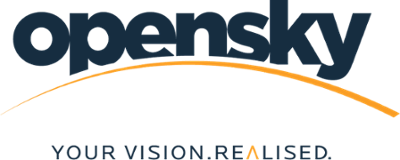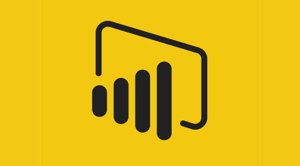What are Power Apps? A detailed introduction to Microsoft Power Apps
What are Power Apps? What can you do with Power Apps? And what are the benefits of using Power Apps? Find answers to these common questions in our in-depth introduction to Microsoft Power Apps.
.png?width=720&name=Power%20Apps%20Logo%20Featured%20Image%20sized%20canvas%20(720%20%C3%97%20400%20px).png)
Businesses across all industries have processes that can be improved, leading to better business outcomes. Unfortunately, off-the-shelf solutions are not always suitable as they lack certain functionality or there is no simple way to connect the right data sources to the solution. In these cases, many businesses look to bespoke application development, which can be overly expensive with long lead times.
Microsoft’s solution to this challenge is Power Apps, a powerful tool in the Microsoft Power Platform suite of business & development technologies. This low-code development tool allows companies to craft custom apps for their needs with significantly shorter development times and less need for expert in-house development staff. In this article we will introduce you to Microsoft Power Apps, explaining why businesses are using the tool, the types of Power Apps that businesses can create and how businesses can start using Power Apps.
What is Microsoft Power Apps?
As one of the 5 core technologies in Microsoft Power Platform (alongside Power Automate, Power BI, Power Pages, and Power Virtual Agents) Power Apps is a suite of apps, services, and connectors, as well as a data platform, that provides a rapid development environment to build custom apps for specific business needs. These apps can integrate with hundreds of data sources, either in a data platform, such as Microsoft Dataverse, or on-premise or online data sources, such as SharePoint, Dynamics 365 or Salesforce. Once the low-code applications have been developed, they can be accessed on any device with an internet connection, including mobile devices.
Why Businesses are Using Power Apps
Power Apps solves business challenges
The number one benefit of Power Apps is that it is versatile and can solve many business challenges. What's more, the specificity and high level of outcomes-oriented customisation of Power Apps means that you can design solutions that solve specific problems with pinpoint precision and speed.
An example of a business challenge that can be solved with Power Apps is expense approvals. Typically, expense approvals require input from multiple departments and include numerous processes. With Power Apps, an app could quickly be developed that allows employees to request to claim expenses with receipts and notes attached. This request can then be approved or rejected by their manager, which is then sent to the finance department to process the claim. Throughout this process, notifications can be sent to any involved party, or it can even be integrated with an existing HR system. A relatively simple application like this can increase productivity, and allow employees to spend more time working to grow the business, and less time following and tracking manual processes.
Power Apps integrates seamlessly into business
Another highly attractive feature of Power Apps is that it integrates very easily into most modern business environments. It seamlessly connects and communicates with the business tools that you use to do your daily work, such as the Microsoft Office 365 collection of business tools (Excel, SharePoint, Outlook, Teams, OneDrive, and many, many more), and Microsoft's cloud and development tools (Azure and .NET). This makes it much more attractive than third-party tools, which would need to be employ some sort of API or data connector of its own in an additional step (and potential point of failure).
Power Apps have a high development speed
Bespoke application development is typically a lengthy process, regardless of if it is completed in-house or by a third-party. For this reason, often processes are not improved or automated due to time or budget constraints. As Power Apps is a low-code solution, the time to deploy is significantly faster. In theory, those without programming knowledge could create an app, however, there is quite a steep learning code, so many businesses choose to outsource the Power App development as it is still significantly faster and more cost-effective.
Power Apps has a wide variety of connectors
There are hundreds of connectors available for use within Power Apps. Some of the obvious ones include products within the Microsoft suite, but there are also connectors for most CRMs, HR solutions, accountancy solutions and even third-party cloud solutions, such as Google Workspace. This wide variety of connectors ensures that regardless of what technologies a business is currently using, Power Apps can improve processes and solve business challenges.
Types of Power Apps

1) Canvas Apps
Canvas apps begin as a blank canvas where the user can drag and drop components or elements onto the canvas. These components may include data sources and connections, expressions for specifying logic and conditional statements. These apps can then be run in a browser, mobile device or embedded in SharePoint, Power BI or Teams.
2) Model-Driven Apps
Model-driven apps start with a data model, and then forms, views, charts and dashboards are added. This makes it possible to have apps that are user-friendly, responsive and easy to understand, even when the underlying data is dense and complex.
3) Portals
Portals are external-facing websites that allow users outside the business to view and interact with data. An example of how a business may use a Power Apps portal includes a customer service portal that allows customers to create and view support cases.
Microsoft Power Apps Frequent Asked Questions (FAQs)
Can Power Apps be used on desktop?
Yes, you can use Power Apps on desktop. You can run the application you create through your web browser as a portal or as an application in tablet mode.
Can Power Apps work offline?
Yes. You can create applications that can be used offline. However, if you plan to generate or use any centralised data for your apps, than some manner of regular connectivity or updates needs to be coded into your application design.
Can Power Apps connect to SQL server?
Yes. Power Apps is a native Microsoft tool, and so it seamlessly connects to a wide variety of data sources, including Excel, SQL server, and more.
Can Power Apps replace Access? Can Power Apps connect to Access?
Mostly, or at least it can heavily supplement your MS Access tools. Historically this was not possible, but Power Platform updates in the past year have integrated Access into Power Platform, and reinforced it with Azure and Azure Access Directory, MS Dataverse, and cloud access. Power Platform can now make full use of Access.
Can Power Apps write to Excel?
Yes. Power Apps is integrated with the Microsoft suite of business tools and has powerful data connection options, allowing it to interact with Excel databases easily.
Can Power Apps send email?
Yes. Power Apps has multiple powerful data connectors, and connects seamlessly to Outlook, allowing to create and send emails through your app.
What can Power Apps do?
Almost anything. The low-code design and wide range of features and data connectors mean that you can design apps that can do almost anything you can think of in your organisation (and it excels at tasks that you'd do quite regularly, or which make use of data).
Which is the better tool to use: Power Apps vs Power Automate? Power Apps vs Power Bi? Power Apps vs Power pages? Power Apps vs Dynamics 365?
The decision on which tool to use out of all of these will always be based on what specifically you want to do with your application. However, you should note that as these tools are a part of the Microsoft Power Platform suite, they're more often used alongside one another rather than as an either-or design choice.
- Power Automate excels at automating common workflows by imitating human user input with powerful logic tools.
- Power BI manages, processes, and presents incredible insights from the data your application might generate, making it ideal of strategy and business optimisation.
- Power Pages allows you to build compelling webpages and sites for your business effortlessly, thanks to a wide selection of templates and new features (with connectors that make your traffic and data available to all your other MS tools).
- Dynamics 365 allows you a powerful, centralised tool to manage all of your case information, client data, business data, and more, allowing you a unified tool for accurate case management, faster customer service, better leads generation through connected sales and marketing, and more.
How your business can start using Power Apps
Our recommendation is always to start your digitisation or automation planning by looking at the kinds of work and tasks you do very frequently and which require a lot of personal input. Typically, you can realise a far more effective ROI by automating, connecting, or accelerating these smaller processes or tasks than by introducing an organisation-wide (and expensive) automation of platform modernisation tool.
These many processes and micro-processes (and the time it takes to switch between them) is where most companies experience the majority of their organisational inertia. However, these are also where Power Apps can shine.
Power Apps has the ability to connect, automate, and integrate multiple small, repetitive processes into one seamless pipeline.
For example, an employee's average work process might look like this:
- Receive an inquiry.
- Have to set up a call.
- Acquire confirmation of the sale.
- Collect, manage, and store the necessary documents.
- Set up a sales order.
- Generate and send invoices.
- Perform a stock-check and potentially order in more stock.
- Create a delivery request for the client.
- Send final sales confirmations.
- Follow-up with the client for customer satisfaction.
With Power Apps you can create customised flows and triggers that bring all these common processes under one manageable, automatic umbrella, totally eliminating the need to personally, manually manage any of them yourself.
Examples of Real-World Power Apps Applications and Solutions
What can you make with Power Apps? There are hundreds, if not thousands, of examples across the world of low-code and no-code solutions built in schools, non-profits, government agencies, and businesses to make life and work easier, simpler, and faster for everyone. Here are a few stand-out examples:
- Training app, for employee onboarding, school tests, exams, quizzes, and other learning environments,
- A room booking app, or an app that reserves seats at a restaurant or play, or any other limited resource that needs tracking.
- Support service apps or applications that allow you to provide Helpdesk or customer assistance.
- A shared drive or location that allows employees, personnel, or students to access and manage files, knowledge bases, and other resources.
- Employee management portals for leave requests, sick leave, time sheets, and other common employee needs.
- Applications for gathering employee feedback, distributing surveys to people (such as employees, students, or conference attendees).
in truth, there is very little that Power Apps cannot do, thanks to its low-code approachability, flexibility, vast number of connectors and libraries, and its fast integration with most vital modern business tools.
Create Your Seamless Work Environment With Customised Power Apps
With our expertise, strict SLAs, and years of successful delivery for some of Ireland's largest public sector automation projects, we can help you identify potential avenues for highly effective tech interventions, simplify the bureaucracy and hassle of securing all relevant licenses, and build solutions that are ultra-refined for your business processes and goals (all in a highly budget- and time-effective manner).
If your business is exploring bespoke business applications with Power Apps, contact us today for all the support you could ever need in your digital transformation journey.



